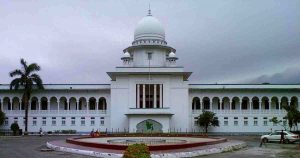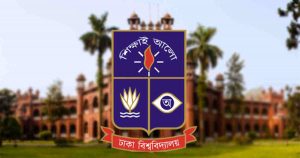Masum Billah
Dhaka – Out of about sixty-four thousand government primary schools, twenty-one thousand have been running without their head teachers. A Bengali daily has highlighted this news making it much enriched with many relevant data and information. Though the primary education calls for the highest amount of attention from the government, we have witnessed its poor show for long. Only giving salary to the teachers from the state treasury is not enough though it deserves appreciation. The most unattractive primary school situation and incompetent teachers cannot put this layer of education on a strong footing and its upshot in the subsequent years and stages of the life of the learners offer the poor show. The most attractive situation of primary education in Japan where necessary cares and food is served to the children and the teachers’ status is first class in Sri Lanka dangle a very meaningful lesson for us.Last year (2016) the Public Service Commission recommended 898 candidates on the basis of 34th BCS exam to be employed as head teachers in primary schools but it has not yet been implemented by the directorate/ministry concerned. As the position of head teachers has been upgraded to the second class, the selection of is to be made through Public Service Commission. The assistant teachers are to play the role of head teachers in the schools which don’t have head teachers. This causes serious problems to run the schools particularly the academic activities. The officers of the second class of the state get the salary of ten grade but the head teachers of primary school still get the salary in the 11th grade. To give salary to the head teachers in the tenth grade, permission to be obtained from the Ministry of Finance as well as to complete some other formalities. According to promotion procedure, 35 percent position of the head teachers can be filled up by direct appointment. The rest 65 percent to be filled up through the promotion of assistant teachers. When the position was in the third class, the Directorate directly recruited the head teachers. As the position has been upgraded to the second class, the responsibility to recruit and upgrade teachers’ position go with PSC. So it is difficult to employ seven thousand teachers within the short period of time let alone fourteen thousand schools. The tiny tots of these schools are suffering due to the delayed decision of the authorities concerned. It calls for speedy implementation. The lack of non-trained and inexperienced teachers pose another problem. And the position of 30 thousand assistant teachers is also vacant in these 64 thousand schools. The in-charge head teachers who are actually assistant teachers are running the administrative works and can hardly give concentration on conducting classes and doing other academic activities.
It is learnt that there are only four teachers in most of the government primary schools in the country. Out of this four one is working as the in-charge head teacher. She/he has to attend the Upazila offices for doing many administrative works. Again, 60 percent primary teachers are women who remain on maternity leave or other leave. Thus one teacher remains on leave always. So, the rest one teacher is to conduct all the classes of the school. It easily makes us understand how much effective academic activities go on in our government primary schools. Students of two or three classes get together to receive a class. Pre-primary class duration in each school is two hours and a half. In class one and two there are four classes and from three to five there are six classes each of which is 45 minutes. But it becomes too difficult for two teachers. It is also learnt that many government primary schools break up after one or two periods and so syllabus is not covered creating a continuous educational gap.
The Directorate of Primary Education itself says that there are then thousand dilapidated schools whose roof and walls are broken and showing the skeleton of the buildings. Rods get exposed and rusted. Water passes through the roof when it rains and the students cannot attend classes. An initiative was taken in 2012 to renovate these schools still no progress has been made in this regard. The number of dilapidated buildings is increasing day by day because of not reforming them timely that keep children under the threat of insecurity. Little learners face serious problems to be in the class in the sun and rain and in stormy weather though these school buildings and campus should have been as heavenly places to the children.
One report released last year that was developed by Research for Advancement of Complete Education (RACE). It showed that 13 percent teachers don’t understand the creative questions at all. 42 percent understand it partially but cannot make them understand in the classroom and the rest 45 percent understand. 47 percent teachers use guidebooks of the market, 35 percent discuss with the colleagues and 18 percent teach according to their own ways. Bangladesh lags behind among all the countries of South East Asian in teachers’ training. Only 58 percent teachers are trained whereas in Nepal it is 90 percent, In Pakistan and Sri Lanka the percentage of trained teachers is 82 percent, in Maldives it is 78 percent and in Myanmar surprisingly hundred percent primary school teachers are trained. In Sri Lanka, the status of primary school teachers is first class. In Bangladesh, it is the only second class for the head teachers only, not the assistant teachers.
The primary education must be the most attractive tier of education. It must be the most exciting stage of education. It must be the strongest beginning of education. But the scenario our existing primary education system offers makes us baffled. We can follow the example of Sri Lanka where the primary school teachers enjoy the first class officer status. Had this been done in our country, more than sixty percent problems of the country can be resolved automatically. The conscious and educated students coming out of this system could really contribute to the nation with their hygienic, civic sense and patriotism and honesty. If these attributes can be instilled in the children, they will hold them in their bosom till their adulthood and throughout their life.
The writer works for BRAC Education Programme. Email: masumbillah65@gmail.com)




